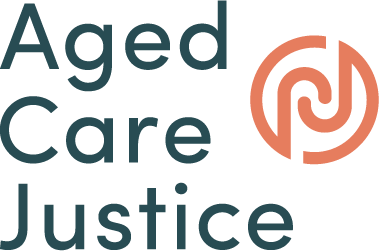Legal options to stop chemical restraint and improper prescribing of psychotropic medications

A recent Commonwealth government audit showed that 90 per cent of residents at a Newcastle nursing home had received psychotropic drugs without prior written consent. However, the lawyers view of that, is that the conduct of the Provider should be viewed as unlawful not just non-compliance with aged care regulations.
The Assessment Team of the Aged Care Quality and Safety Commission [ACQSC] reviewed a psychotropic register, which indicated that 35/39 consumers were receiving psychotropics at the service and all had relevant diagnoses and conditions for the medications prescribed. However, the acting residential care manager said there were no written consents from representatives for consumers receiving psychotropics at the service.
The ACQSC performance report details the Commission’s assessment of the provider’s performance, in relation to the service, against the Aged Care Quality Standards (Quality Standards).
Anglican Care’s Greenmount Gardens in Mt Hutton was deemed non-compliant by ACQSC auditors after an inspection last April. The nursing home admitted there were no written consents from family members or their guardians for 35 out of 39 residents who had received the drugs.
Applying consumer law remedies, such as a claim through the NSW Civil and Administrative Tribunal [NCAT], is a new legal approach that could deliver families justice more quickly than the courts and with less risk of paying the other party’s legal costs if a claim fails. Fees already paid for care may be ordered to be refunded. In the case of fully supported residents, whose fees have been fully subsidised by the Commonwealth government, if successful with their claims, their representative can apply to the Department of Health for a refund of the resident [or their estate] of the fees ordered to be paid back by NCAT.
If aged care facilities are chemically restraining or are prescribing psychotropic medications without proper legal written consent or in cases of imminent harm to a person, they are effectively breaking a resident’s Charter of rights, and their standards of good care and service, by committing the common law offence of unlawful restraint.
Penalising the Provider by regulatory action is one thing, but that doesn’t compensate the resident for the harm and the indignity. Being deemed non-compliant by the regulator is not a sufficient penalty to effect change. The resident should have some or all of their aged care fees refunded if the provider has failed to provide the quality service it was committed to do.
The overuse and inappropriate use of psychotropic medication in nursing homes was a key issue identified by the Royal Commission into Aged Care Quality and Safety. The Federal Government has recently changed the law in response to the Royal Commission’s recommendations.
Despite the prominence of the unlawful restraint issue and aged care legislation changes we are still seeing aged care homes possibly breaking both the law and the aged care regulations and protocols by chemically restraining residents without a form of consent in place.
Litigation can be a tool for social education and reform, so we need consequences for unlawful behaviour. Psychotropic medications affect the mind, emotions, and behaviour – and include antipsychotics, antidepressants, and benzodiazepines to manage anxiety and insomnia. They must be delivered according to a care plan and with prior lawful consent.
Get Help
If you or someone you know needs legal assistance, we encourage you to fill out ALARM’s GetHelp form on our website at www.ALARM.ORG.AU; or contact ALARM on (03) 9016 3248; or email us on info@agedcarejustice.org.au. You may then select, or, if you wish, we will direct you to, one of our Allied Law Firms for an initial meeting and advice, at no cost to you. Thereafter, you can decide whether to proceed with a formal legal complaint. If you do wish to proceed, costs arrangements, if any, will need to be discussed, and agreed, with the firm.
Disclaimer:
The views expressed in this article are the views of the author. The contents of this article are for general information purposes only and do not constitute legal advice, are not intended to be a substitute for legal advice, and should not be relied upon as such. Legal advice should be sought prior to any action being taken in reliance on any of the information. If you are in need of legal advice and/or assistance about aged care matters, please seek legal advice directly or via ALARM’s GET HELP form on its website: www.agedcarejustice.org.au.
